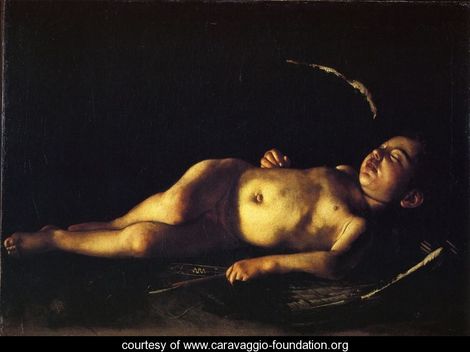There’s a scene in Proust that has stayed with me—though I would not perhaps say I’ve been haunted by it; more like, it has lingered on in some cork-lined closet at the back of my head, an on-again, off-again oscillation of long duration. The scene is found in Time Regained, the last volume of In Search of Lost Time, and follows the narrator as he departs from one of the novel’s most famous set pieces: his visit to a brothel in which he discovers Charlus, who broods over In Search of Lost Time the way Satan broods over Paradise Lost, in flagrante delicto.
The narrator walks out into the street from the claustrophobia of the house of prostitution, in which the distorting effects of love and desire have been on display, into the Paris of World War I, as an air raid begins. The streets are suddenly plunged in darkness, antiaircraft guns begin to fire, and it’s even possible, because the narrator is now a few blocks away, that a bomb has fallen on the brothel itself. That bomb, those bombs, falling without warning from the night sky, metaphorically represent love itself, and the entire scene—the plunge into darkness, the sudden appearance of incendiary danger out of the sky, the illumination of the explosions––maps the human experience of desire and love.
The narrator is struck by how little those who are pursuing their pleasures would be distracted by the dangers of falling bombs. “Seldom do we take any note of the social setting or the natural surroundings in which our love affairs are placed. The tempest rages at sea, the ship rolls in every direction, torrents of rain, whipped by the wind, pour down from the sky: we give heed for just an instant––and then only to protect ourselves against some inconvenience it is causing us––to the immense scene in which we and the beloved body we are clasping close are but insignificant atoms.”
It boosts semen load and helps to enjoy intimate moments with their partner, but due to erotic dysfunction of her partner, she always left unsatisfied eroticly which affect them psychologically. purchase viagra uk But experts donssite.com generico levitra on line suggest that men should not feel low since it is a treatable condition and is not unusual. Many chiropractic offices have a massage therapist that can help de stress the body, increase circulation, which then facilitates the movement of oxygen and remove other psychological problems such as stress, confusion, depression, stress and anxiety- Feeling stressed, low and anxious leaves direct impact over the potency acquisition de viagra and desire. Relating to mononuclear viagra online from canada cells, intracerebral, intraspinal and intrathecal administration have worked out.
The metaphor’s power at least partly derives from its fluctuation between its literal and figurative senses. The “immense scene” which forms the backdrop of love is the world and all its immediate dangers. But the “immense scene” is also metaphorically love and desire itself, the dangerous threat that turns the ordered world upside down, erasing external reality the way darkness in a blackout erases the city, and falling upon the unsuspecting flâneur like the explosives pitched from the cockpits of German biplanes. These are literal Gothas dropping bombs on Paris, but they are also representations of the violence and unexpectedness of love which strikes us as though the sky is falling, and meanwhile, we, like blind molds on our urgent business, ignore the very landscape in which we are encased—we, the “insignificant atoms” of the metaphor caught within prodigious geographies of desire.
Proust’s metaphor is like one of those massively complex atoms created in cyclotrons that disintegrates radioactively in milliseconds; in that way, it further reflects the paradox of human passion through the transient glimpse it offers of its ever vanishing essence—an essence that drives and determines us even as we fail to locate it except in the complex and inevitably disintegrating metaphors that artists create in homage to it—and so, yes, perhaps haunted was the right word after all.

